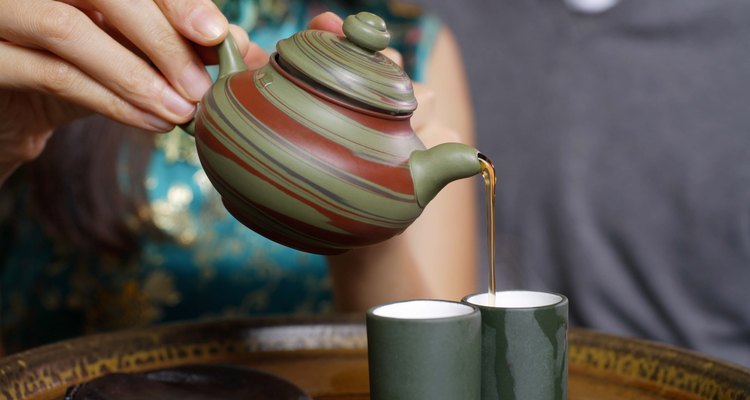
Jupiterimages/Goodshoot/Getty Images
White and green teas may help people retain a more youthful appearance by promoting collagen and elastin health. Research on these benefits was somewhat new as of 2010, so no one has definitively found just how much tea a person needs to drink to achieve healthier looking skin. Some recommendations call for four to six cups daily. Researchers do know, however, that white tea contains the smallest amount of caffeine among non-herbal teas, and that it has strong health benefits such antioxidant powers along with promoting youthful-looking skin.
Time Frame
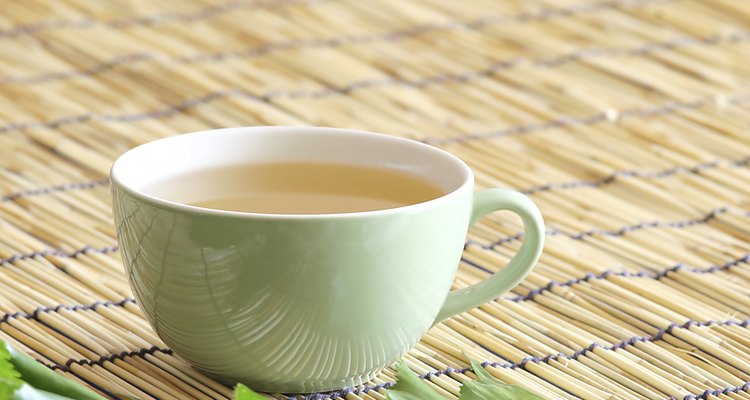
popsarasin/iStock/Getty Images
A London-based study found that white tea performs the best among plant extracts that protect collagen and elastin, the structural proteins of the skin. White tea was most effective, followed by bladderwrack tea, green tea, angelica tea and pomegranate tea, according to the Kingston University study, which was published in the August 4, 2009 issue of the journal BioMed Central Complementary and Alternative Medicine.
Function

Ingram Publishing/Ingram Publishing/Getty Images
White tea offers the best protection against enzymes that cause the breakdown of collagen and elastin in skin. White tea has a high phenolic acid content. Phenolic acid is a polyphenol that can help prevent tissue injury. Both white and green teas also are high in antioxidants. Antioxidants inhibit free radicals, which cause damage to skin cells, according to the American Association for Clinical Chemistry. Both teas protect against one of the most common free radicals that damages skin, called superoxide. Protection against superoxide is one key to producing healthy skin-building cells in the body. The same property in the teas that counters superoxide also assists the body in utilizing nutrients important to skin health such as zinc, manganese and copper.
Significance

Valua Vitaly/iStock/Getty Images
Elastin is important because it supports the body’s natural elasticity. This helps skin, lungs, ligaments and arteries function, according to Professor Declan Naughton, one of the researchers from Kingston University. Elastin stops skin from sagging and helps the body repair tissue after a wound. Collagen is a protein that’s found in the body’s connective tissues. It is vital for skin elasticity and strength. Collagen breakdown leads to the wrinkles people get when they age.
Benefits
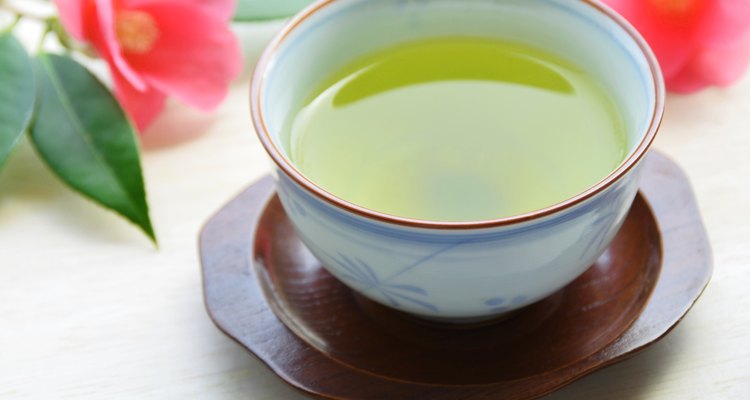
botamochi/iStock/Getty Images
White tea and green tea can help keep people healthy as well as looking young, according to Naughton. The enzymes that the teas inhibit, as well as oxidants, are associated with many inflammatory diseases, including rheumatoid arthritis and some cancers. Suppressing the damaging activities of these components has been the subject of decades-long research, according to Naughton. The high antioxidant levels in the teas also can help prevent health conditions like cancer and heart disease. White tea may also have anti-obesity effects, according to a study published in the May 7, 2009, issue of the journal Nutrition and Metabolism.
Identification
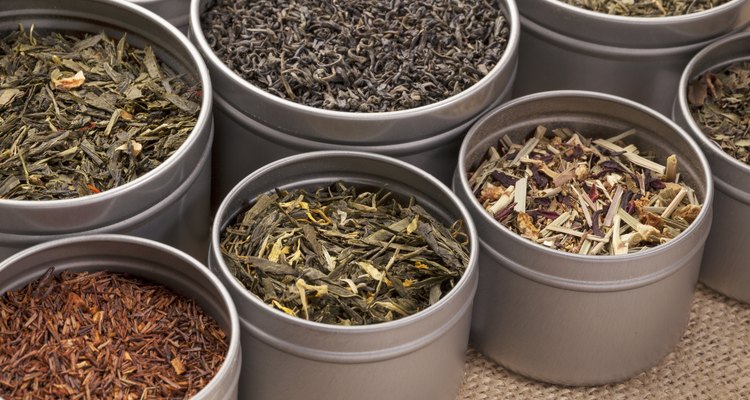
marekuliasz/iStock/Getty Images
White tea and green tea come from the same plant. White tea consists of buds and first leaves of the Asian plant Camellia sinesis, which is also used for making green tea. White tea is less processed than green tea, and retains more of the ingredients believed to be active on human cells.
Related Articles

Chinese Remedies for Lines & Wrinkles

Is Rooibos Tea Good for Acne?
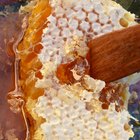
Manuka Honey & Rosacea

Golden Flax Seed Vs. Dark Flax Seed

Green Tea for Acne Scars

Chamomile & Aloe Skin Care

Benefits of Green Tea Soap

How to Make Your White Hair Whiter

Are There Herbal Treatments for ...

Home Remedies for Puffy Bags Under Eyes
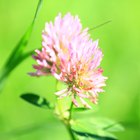
Red Clover for Acne
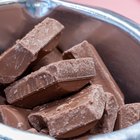
Chocolate and Vitamins
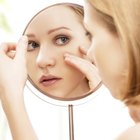
Skin Care Products That Contain ...

Teas That Stop Facial Hair Growth

How to Julienne Jicama

What Is the Meaning of White China Jade ...

Natural Tips for White Hair

Matcha Green Tea Butter for Hair Growth
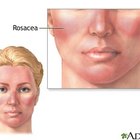
How to Treat Rosacea With Green Tea

Green Tea Remedy for Blackheads
References
- BMC Complementary and Alternative Medicine: “Anti-collagenase, anti-elastase and anti-oxidant activities of extracts from 21 plants,” Tamsyn SA Thring, Pauline Hili, Declan P. Naughton; Aug. 4, 2009
- Nutrition & Metabolism: “White Tea extract induces lipolytic activity and inhibits adipogenesis in human subcutaneous (pre)-adipocytes;” Jörn Söhle, Anja Knott, Ursula Holtzmann, Ralf Siegner, Elke Grönniger, Andreas Schepky, Stefan Gallinat, Horst Wenck, Franz Stäb and Marc Winnefeld; May 7,2009
- Journal of Agricultural and Food Chemistry: “Phenolic Antioxidants Prevent Peroxynitrite-Derived Collagen Modification in Vitro;” Yoji Kato, Yuji Ogino, Tomoko Aoki, Koji Uchida, Shunro Kawakishi, and Toshihiko Osawa of Nagoya University, Nagoya, Japan; Aug. 18, 1997
Resources
Writer Bio
Linda Tarr Kent is a reporter and editor with more than 20 years experience at Gannett Company Inc., The McClatchy Company, Sound Publishing Inc., Mach Publishing, MomFit The Movement and other companies. Her area of expertise is health and fitness. She is a Bosu fitness and stand-up paddle surfing instructor. Kent holds a bachelor's degree in journalism from Washington State University.
Photo Credits
Jupiterimages/Goodshoot/Getty Images